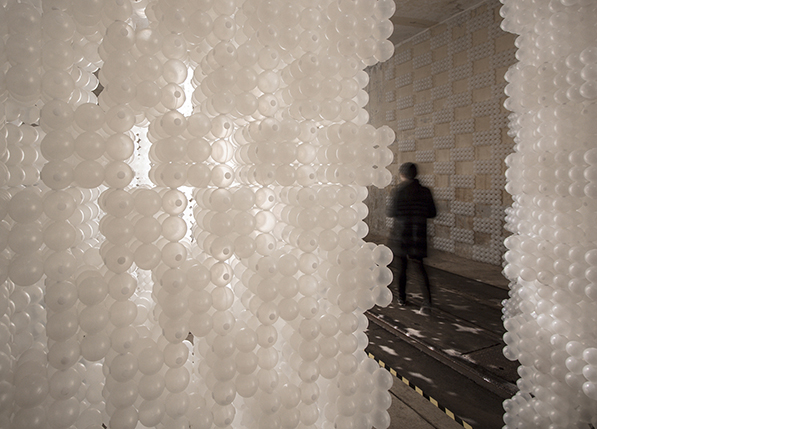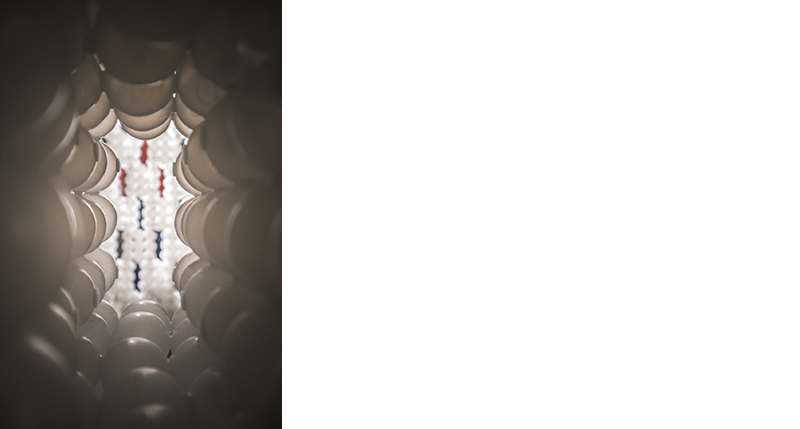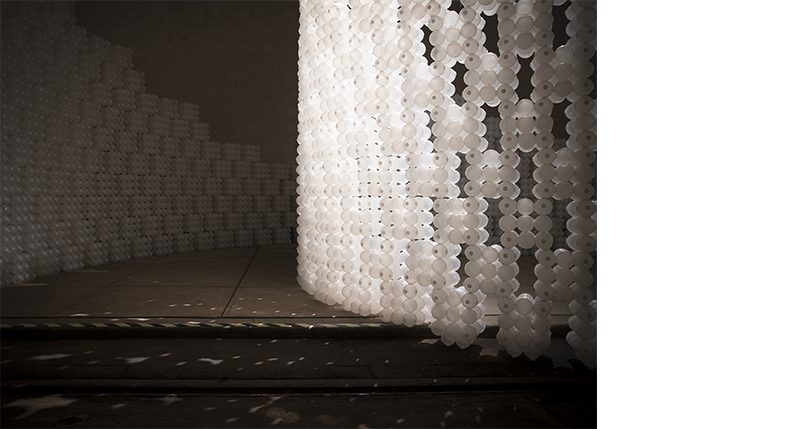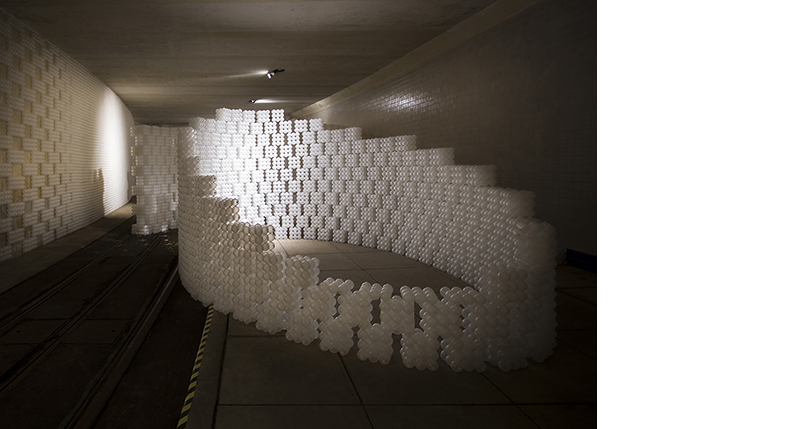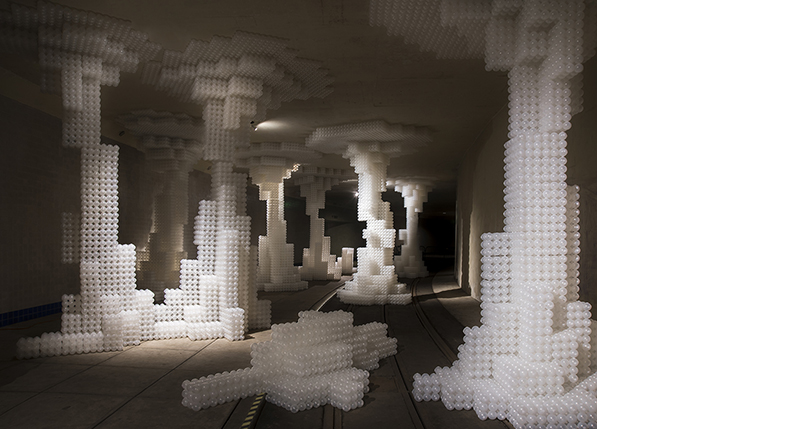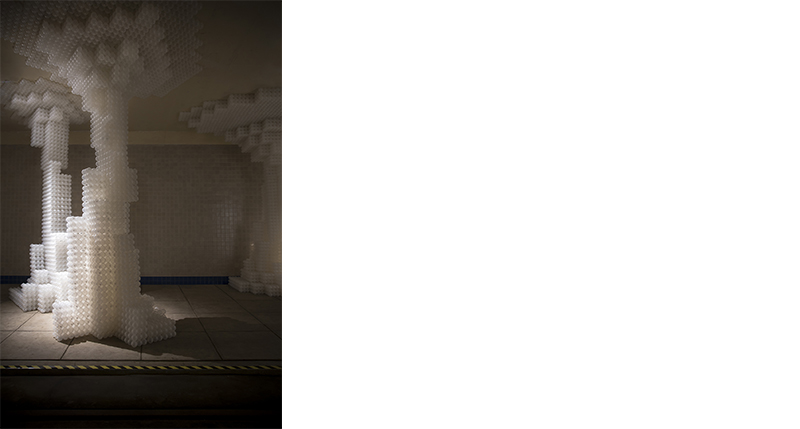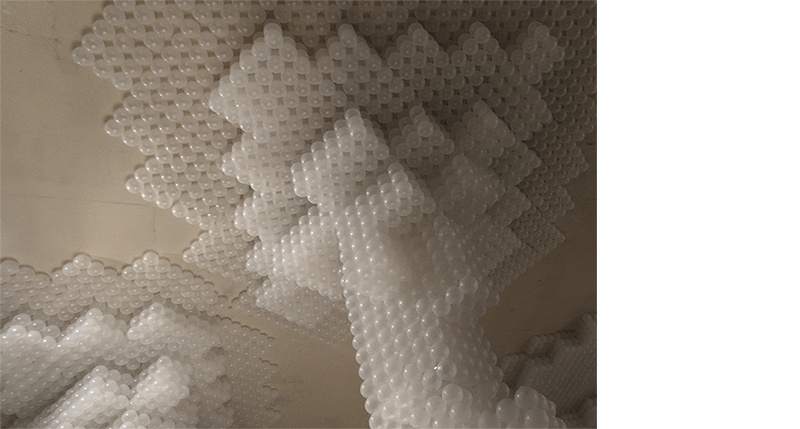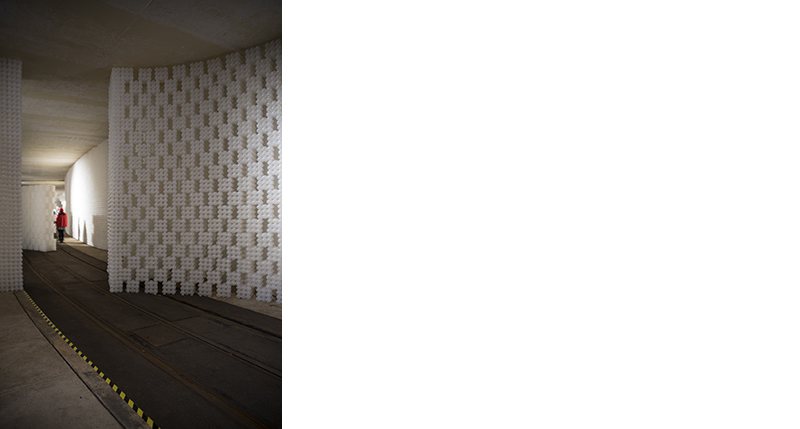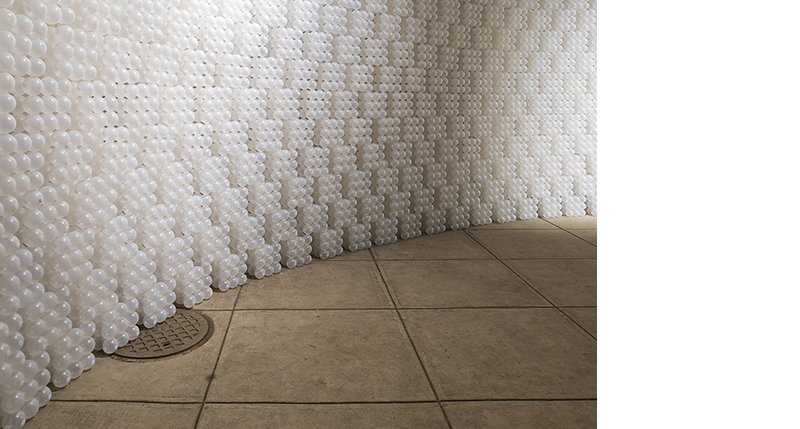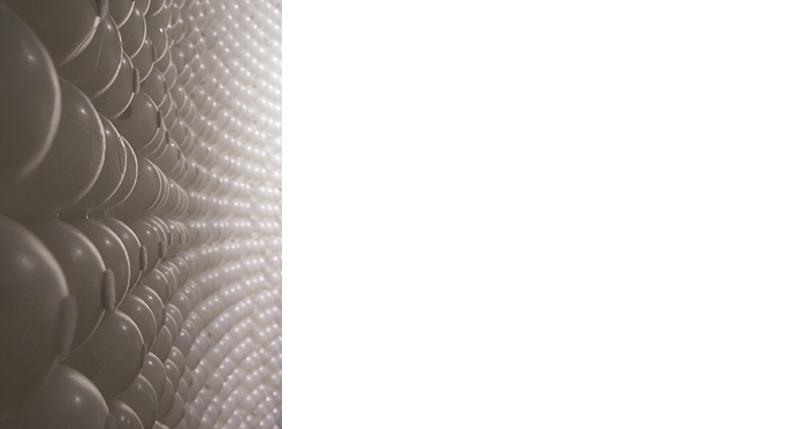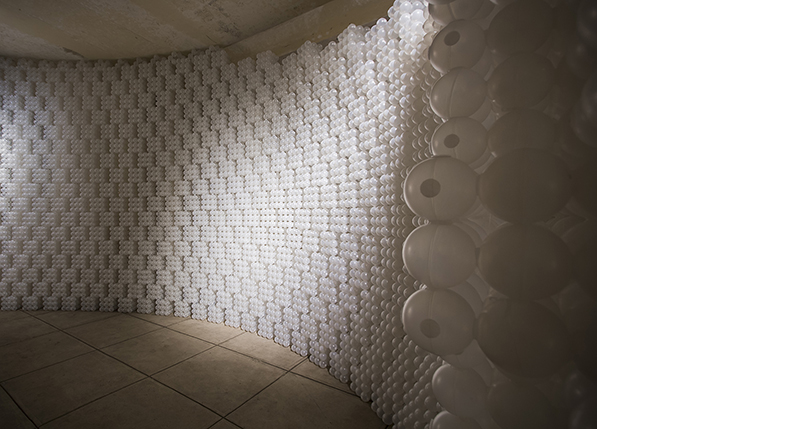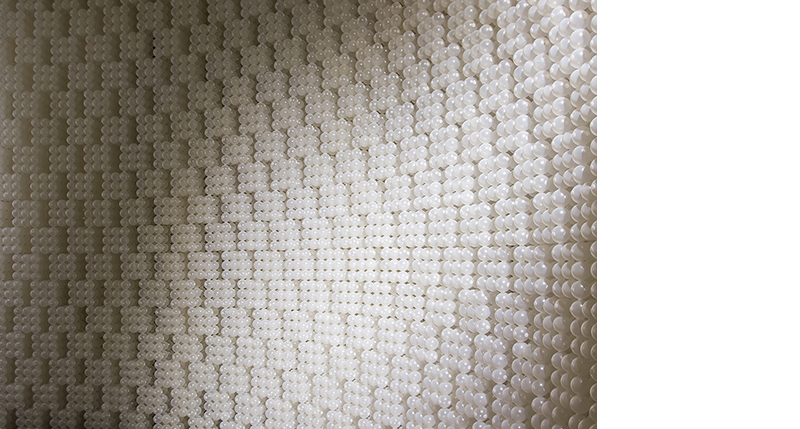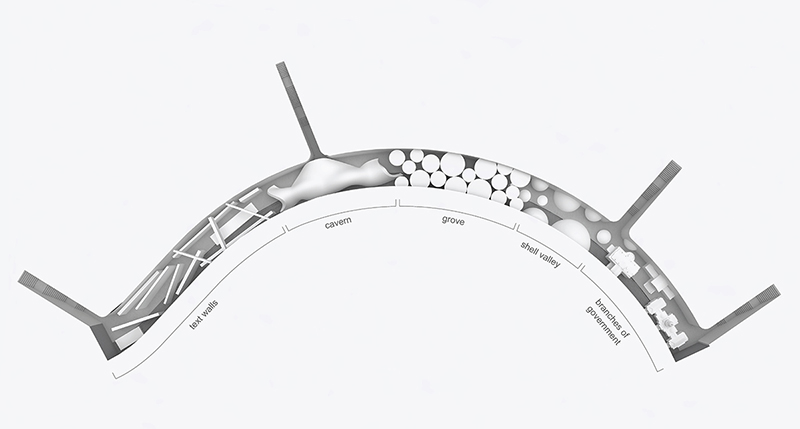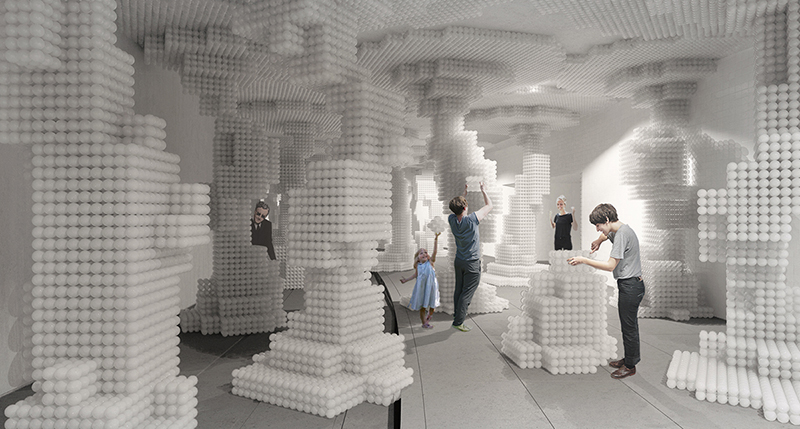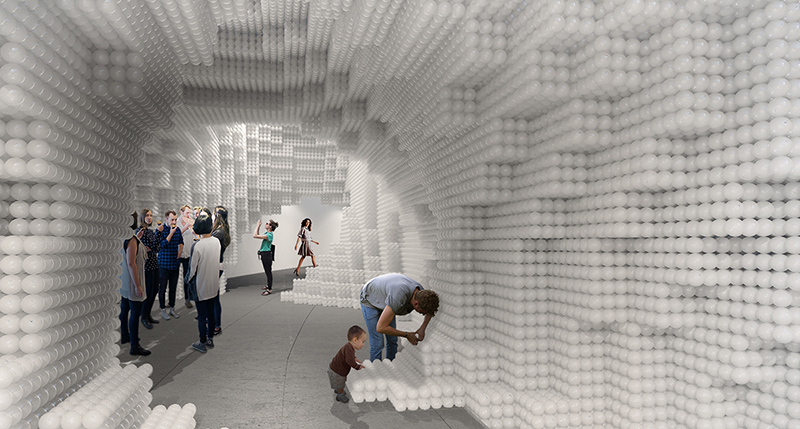Raise/Raze
Dupont Underground, in partnership with The National Building Museum and The Phillips Collection, selected Hou de Sousa’s Raise/Raze proposal as the winning entry for the Re-ball! International Design Competition.
Raise/Raze is a simple, light weight and fully re-configurable assembly block system. The concept stemmed from the Re-Ball! competition brief, which emphasized the re-purposing of a previously used material. Over 650k plastic spheres were pooled together into a massive ball pit the previous summer at The National Building Museum as part of an installation titled The Beach by architecture studio Snarkitecture. We admired that The Beach was essentially formless and allowed the public to fully engage it in a tactile way. We wanted to continue these key aspects and sought out a design which could function as a dynamic and re-usable system of sculptural and democratic communication, rather than proposing a specific static form. We were also intrigued by the fact that there was a such a large, but finite, quantity of building material and that the public could take part in an observable demonstration of the law of the conservation of mass whereby creation and destruction are inextricably linked. In this way Raise/Raze works very similarly to a playground sandbox, or a real-world full-scale version of the video game Minecraft. Visitors can alter the objects and environment around them with ease, with the consequence being that everything new is built from what was there before it.
Following a series of material tests and experiments with various adhesives and magnets, as well as several mock-ups, we arrived at a 27 ball cube that is fused together with hot glue and attaches to neighboring cubes using Velcro. Larger cubes were also tested, but the 27 ball version had the distinct advantages of weighing less, being easier to build, and providing a finer visual resolution.
Dupont Underground is a long and narrow curved tunnel that previously served as a street car trolley station below Dupont Circle. Because of this, an inhabitant’s view of the space is always limited, and there is no clear line of sight from one end of the tunnel to the other. It’s an intriguing spatial characteristic; differing from long straight tunnels, which shrink towards a vanishing point and appear daunting in comparison. Our proposal further compartmentalized the existing space into a series of zones which presented visitors with unique situations and scenarios, while also re-configuring how one circulates through the site.
Raise/Raze was popular both during construction and when it opened to the public. Over a thousand people volunteered to build approximately 12k cubes over the course of several weeks. 324k balls were glued into cubes which required 648k dabs of hot glue and 288k Velcro dots. We were delighted and stunned by the public’s embrace of the project and how much people enjoyed helping make Raise/Raze happen.
Tickets for the month long event sold out the first day and it was fascinating watching the public interact with the installation. Many collaborated on building large scale sculptures, while others went it alone. Some relished destroying while others blissfully put the pieces back together. The formation of houses, chairs and animals trended heavily, igniting competitive spirits, meanwhile singular and unpredictable pieces were created by those blind and deaf to the buzz surrounding them. In full operation, Raise/Raze transcended mere plastic balls and glue and served as a mirror.
Raise/Raze was was open to the public in 2016.

